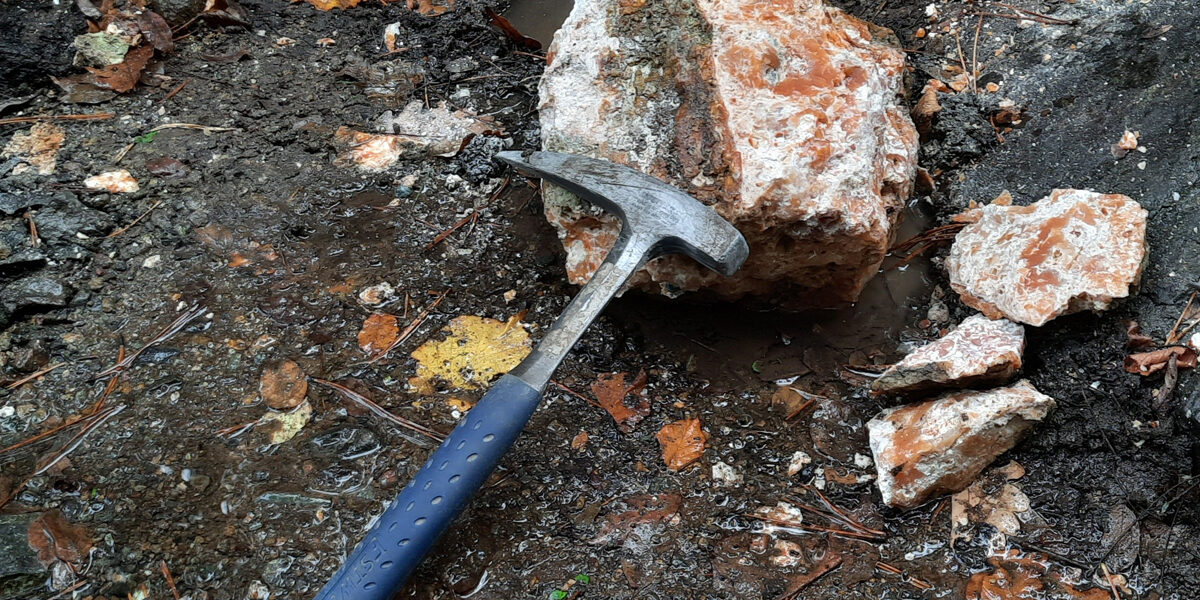Mladen Stevanović is a geologist with two decades of work experience gained on four continents. From a novice Balkan geologist, through diligent and successful work he reached the position of a chief geologist of the world's largest mining companies in Australia, West Africa and Southeast Europe. He has been working for more than a year in the company Lykos Balkan Metals, based in Bijeljina, as director and chief geologist.
How did you decide to become a geologist?
I have always shown an interest in nature and the processes that shape the Earth's surface, such as volcanic eruptions, earthquakes, the formation of continents, crystals and fossils. In the course of my studies, I opted for the direction of mineral deposit exploration because it sounded detective and adventurous. And my career really took me to exotic parts of the planet: from the Balkan mountains, through Canadian tundras and African jungles to Australian deserts - in search of precious and basic metals, precious and semi-precious stones, radioactive and nutritious mineral raw materials.
In your opinion, what qualities should be possessed by someone who decides to study geology?
Anyone can become a geologist. Geologists are curious, creative, love working in nature, have skills in field navigation and survival in nature. Anyone with similar interests can become a successful geologist.
What is your favorite segment of work?
Time spent in the field, planning activities and working with young geologists.
What is the most challenging part of your job?
Long periods of separation from family and friends outside of work.
You have worked in numerous locations. How, in the geological terms, does Bosnia and Herzegovina differ from other locations?
For its size, the territory of BiH is geologically very diverse. From old rock formations rich in gold and iron, through thick limestone layers with exceptional natural caves, remnants of the oceanic crust of the former Tethys Ocean, to younger layers that contain important mineral raw materials such as: salt, coal and oil. Also, compared to the rest of the Balkans, by today's standards the territory of Bosnia and Herzegovina is geologically relatively unexplored, which makes it very attractive for modern geologists and researchers.
What do you like about Lykos as a company?
Lykos from around the world brings to Bosnia and Herzegovina the experience of managing stock companies and the most modern methods of geological research. On the other hand, at Lykos we gather people who like teamwork and with whom working is a delight.
What does a geologist's day look like?
The day begins with a meeting where the field team plans the day's activities. There is a lot of walking in the field, a geological description of the rocks is carried out, samples are collected for laboratory analysis, geophysical measurements are carried out to register natural anomalies of one of the physical fields (magnetic or electric field, gravity, etc.), exploratory drilling is carried out and then the pierced rock samples that come from the deeper parts of the rocks are described – and you enjoy the nature, of course. When returning from the field, the collected data is compiled and stored in the archive, and the interpretation of the collected data is performed, i.e. what the newly collected data says about the chances of finding mineral wealth is analyzed and the geological maps are updated. The day usually ends with a joint dinner and a short get-together before dinner.
What tools do you use in the field?
All the tools that a exploration geologist usually uses in the field can fit in a vest pocket or hang from a belt. These tools include: a geological hammer that is made entirely of one piece of steel to endure numerous blows to the rocks, a compass, a hand-held GPS, magnifiers of different magnifications, a magnetic pencil for testing the magnetism of minerals, knives of different hardness or a scraper for tests of hardness and color of scratches of minerals, a bottle with diluted hydrochloric acid for identifying carbonate minerals, a notebook with waterproof sheets for working in all weather conditions.
What would you choose as a career if you weren't a geologist?
I am interested in professions where technical and natural sciences meet, and I enjoy field work. If I were not a geologist, I would be an archaeologist or surveyor.
In the conversation with Stevanović, we learned interesting information about the work of a geologist, but also about the geological potential of BiH and the work in the company of which he is an important part.








